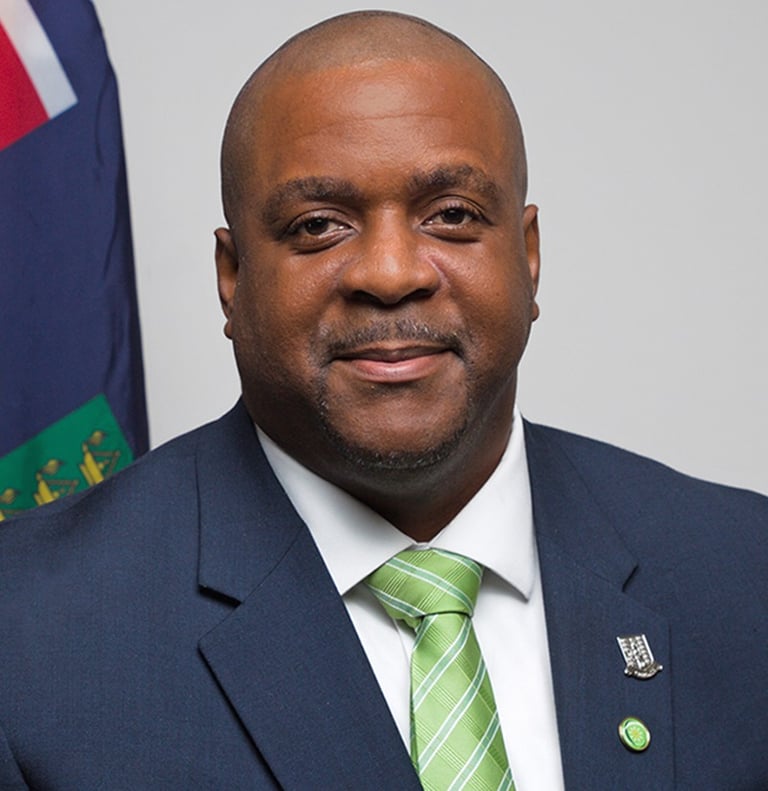Former BVI Premier found guilty of conspiracy and drug offences
In February, following a courtroom drama, the likes of which are rarely seen outside the pages of a John Grisham novel, former BVI Premier Andrew Fahie was found guilty of conspiracy by a Miami Jury.
NEWS FROM THE OVERSEAS TERRITORIESBRITISH VIRGIN ISLANDS
In February, following a courtroom drama, the likes of which are rarely seen outside the pages of a John Grisham novel, former BVI Premier Andrew Fahie was found guilty of conspiracy by a Miami Jury. The Jury was unanimous in finding Fahie guilty of conspiracy to import a controlled substance, conspiracy to engage in money laundering, attempted money laundering, and interstate and foreign travel in aid of racketeering. The charges have a minimum sentence of ten years in prison.
But was it unanimous? The day after the verdict was delivered, and in an unprecedented twist, one of the jurors contacted Fahie's defence attorney to say that the verdict wasn't unanimous. The two of the jurors did not find Fahie guilty on all charges. The defence attorney contacted the judge to say that the instructions to bring back a majority verdict had yet to be followed. The prosecution argued that his right to a fair trial was exercised, and he was found guilty. He faces a maximum sentence for the cocaine conspiracy charge of life in prison and a $10 million fine.
Fahie was placed in custody as soon as the verdict was delivered, with the Jury (apparently most of them) failing to buy his story that he had been framed by the British Government. Unfortunately for Fahie, the Port Authority Manager, one of the co-conspirators had already pleaded guilty and gave evidence for the prosecution. She recounted Fahie's negotiations with the informant, who was working for the US Drug Enforcement Agency, including his agreement to a share of the profits from the cocaine shipments.
Fahie's defence was based on the denials by the Island Governor that he had any prior knowledge of the Florida sting and was as surprised by the action as anyone. But the timing aligned with the Commission of Inquiry report into the Governance of the Islands. Also, during the trial, it was discovered that the UK Government had known for months about the operation, even if they hadn't informed anyone in BVI Suspicious? Fahie's defence team thought so and used that to suggest reasonable doubt.
According to them, it was Fahie who was the undercover agent. In his head, he was Jason Bourne. He had been approached by someone claiming to be from a Mexican cartel looking to get his drugs through the BVI, and it was his civic duty to get to the bottom of it. He believed the British wanted to oust him as Premier, and he needed to go along with the supposed drug trafficker to get to the bottom of the conspiracy. This went as far as agreeing to spend hundreds of thousands of dollars in a private jet parked at Miami airport, where he was arrested.
"Mr. Fahie was concerned that the British didn't like him," his attorney told the Court. "Mr. Fahie knew that someone was trying to remove him from his position as premier." Fahie took role-playing as Bourne even further when he agreed to accept millions in bribes from the trafficker so he could uncover whether the smuggler was out to destroy him on behalf of the British government, his lawyer said during closing arguments. The Jury didn't buy it.
The Islands' strategic geography makes the British Virgin Islands hugely important to organised crime. They lie close to the US Virgin Islands and also to significant cocaine transhipment points like Puerto Rico and the Dominican Republic. In the year Fahie was arrested, US authorities seized 11 tons of cocaine in the region. This was more than the amounts seized that year by Honduras (7.1) and Guatemala (5.9), both prominent transhipment points in their own right.
In July 2023, US authorities intercepted 2 tons of cocaine in Anguillan waters that were thought to be heading toward the BVI. Other major seizures included that of a cocaine-filled aeroplane in August and a 1.2-ton seizure in the Caribbean Sea the following month.


